
Let’s face it: We all want to be fit, healthy, active, and happy. We also admire people who seem to have it all figured out and have managed to make fitness an effortless part of their lives.
The truth is, you first must learn how to walk before you can run. Like most things, healthy habits develop slowly, and we need to take it one step at a time. What really helps in the process is finding a list of effortless and healthy habits to start that you can get inspiration from. In other words, habits that require little effort, but can yield high benefits.
To help you in the process, I have listed below my top easy & healthy habits that you can start today without much effort. Each habit is listed with an estimate for the level of effort required (for example, how much time it takes), and the awesome benefits you will get from it!
Our Favorite Healthy Habits to Start Today
We have categorised our favorite habits into the following main buckets: 1) Food & Nutrition, 2) Staying Active & Fitness, and 3) Mindfulness. Let’s get started with food and nutrition!
Table of Contents
Easy Habits to Eat Better
We have listed below healthy food habits to start today that will not require a lot of effort, but will yield significant benefits:
1. Put Healthy Food Front & Center in Your Kitchen

Effort: Very Easy
This is a very healthy habit to start: simply add a bowl of apples or tomatoes (or your favorite fruits and veggies) on your kitchen countertop.
So why is this a good habit to start? You might be surprised to learn that we often make food choices simply based on their accessibility. If you fill your home with whole and nutritious foods, you are more likely to start eating those (Source: U-Penn Study).
Benefit: High
By placing healthy options front and center, research shows that you might increase your consumption of healthy options by as much as 25% (Source: MA General Hospital study). Learn more about this habit on our page: The Best Tip to (Finally) Eat Healthy.
2. Drink Water Before Each Meal

Effort: Very Easy
Drink a glass of water before each meal. That sounds manageable enough, right? And it is. Simply put a large bottle of water on your countertop or leave an empty glass on the kitchen table as a reminder. Each time you sit down to eat, the glass will trigger the habit of filling it up with water and drinking it before you finish the meal.
Benefit: Medium
This simple habit is great for two reasons: First, it keeps you hydrated, boosts your energy, improves your cognitive function, and helps you stay healthy. Second, drinking water helps fill up your stomach, which allows you to feel full earlier and eat less food (Source: Effect of Pre-meal Water Consumption on Food Intake). This is fantastic if you’re looking to control your food intake and lose weight.
3. Include a Fruit or Veggie With Each Meal
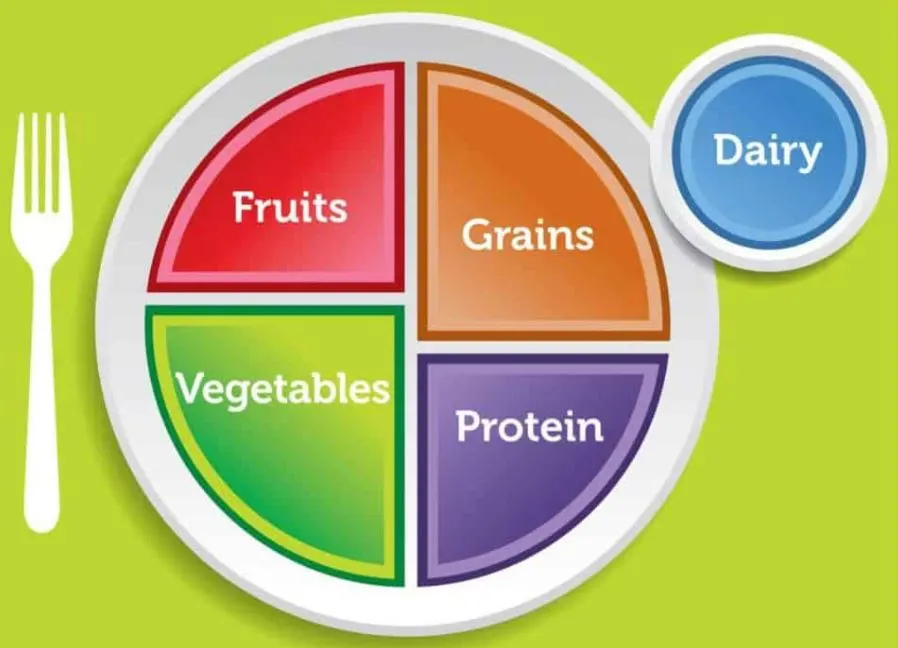
Effort: High
This habit requires more effort because you will need to cook more veggies, but we wanted to list it here because it’s so important for your body. The healthy habit to start is to add a serving of fruit or veggies, with each meal (no exception). For example:
- Breakfast: Scrambled eggs with toast and a large apple
- Lunch: Steak with potatoes and a green salad (plus fruit for dessert)
- Dinner: Fish with quinoa and a salad (and fruit for dessert)
Benefit: High
Eating more fruits and veggies will help increase your fiber, vitamin, and mineral intake. If you’re just getting started, you probably won’t eat as healthily at every meal, and that’s okay. Aim for small and gradual improvements.
4. Plan Your Meals Ahead of Time
Meal planning is a great strategy to lose weight or eat more veggies. It helps you take charge of what you buy at the store and eat during the week.
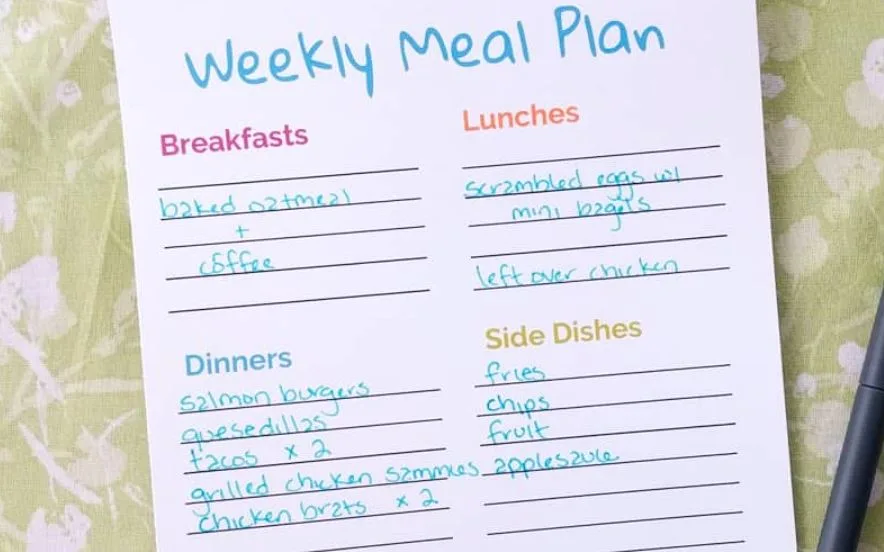
Effort: Medium
Meal planning is just one step you add to making a grocery list. It is one of the most effective ways to ensure you eat healthy (and save money!). To learn more, read our article on 2-Step Easy Meal Planning and 6 Ways to Use Meal Planning to Eat Healthy.
Benefit: High
Write your meal plan to achieve your goal (lose weight, eat more veggies, eat less sugar, etc). Planning your meals for the week helps make sure you are in control of what you eat, and that you don’t end up just ordering take-out or picking naugthy food because you have not planned your meals.
5. Kickstart your Day with a Healthy Breakfast.
Starting with a breakfast that’s good for you is a fantastic new healthy habit to start. It kicks your day off on the right note, and give you a headstart.
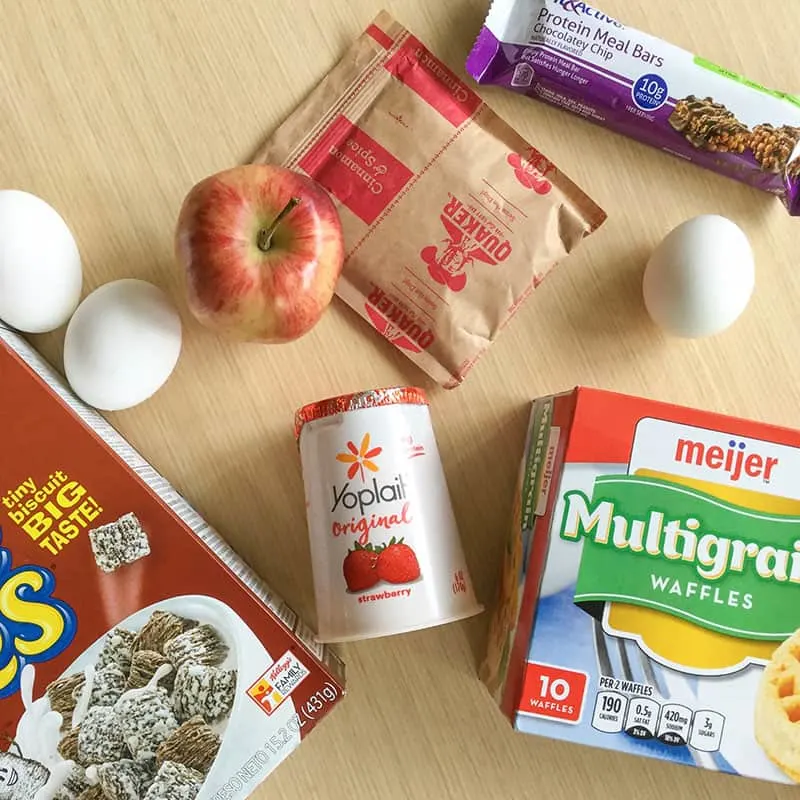
Effort: Medium
So what do we eat for breakfast? Healthy cereals, oatmeal, scrambled eggs (Read our article on How to Simplify Breakfast). These breakfast ideas are (mostly) healthy, filling and can be made quickly. You just need to make sure you buy them ahead of time when grocery shopping. The effort is “medium” because you might have to give up on your favorite morning buttery toasts or sugary cereals.
Benefit: Medium
Getting started on a healthy note and avoiding excessive amount of butter, jam or sugary cereals is a great way to start the day.
To view more healthy food habits to start, read 5 Easy Healthy Food Habits.
Let’s now review our easy & healthy habits to start to keep your body in shape and stay active!
Easy Habits to Be More Active
Staying active comes with many benefits: it improves your mood, reduces stress & depression, increase happiness, and boosts your energy levels. So it makes sense that a lot of the healthy habits to start that we recommend on this page are related to staying active or exercising. Here are our favorite exercising/fitness habits to start, that require a low effort and come with significant benefits for your body and mind:
6. Go for a Daily Walk
“Staying active” is about getting your body to move and stay healthy. It doesn’t have to be an intense fitness work out. It can just be a walk in the park (literrally!). According to the Mayo Clinic, we need 30 minutes per day of moderate physical activity daily. If walking places is not yet your thing, start small: exercise physiologist Christopher Travers states that “Even a 10-minute walk can help boost your cardiovascular health”.
Effort: Medium/High
Staying active does require effort and planning (depending on your current level of activity), but is an absolute must in our list of healthy habits to start. Check out our article on 7 Simple Ways to Stay Active.
Benefit: Very high
Research shows (Source) that staying active and exercising regularly has the following benefits: 1) Better sleep, 2) Increased sexual interest, 3) Less stress, 4) Improvement in mood, and 5) Increased energy, 6) Weight loss. Sounds good? 😊
7. Establish a Simple Daily Exercise Routine (5 minutes)
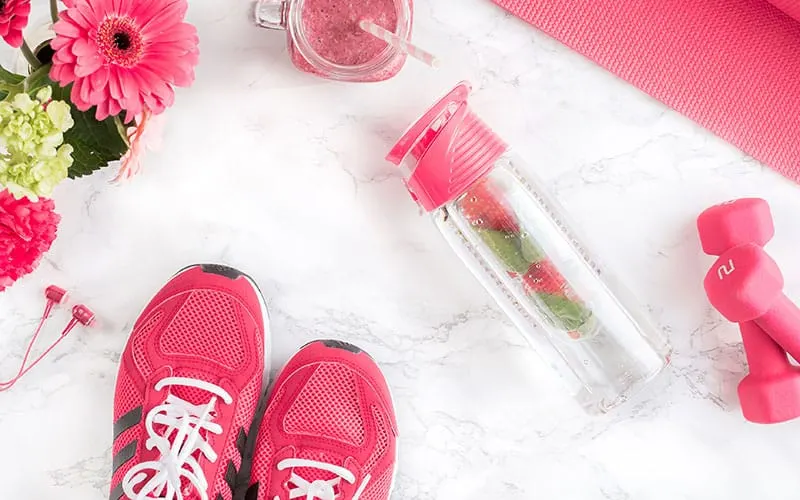
The great news is, you don’t need to live in the gym to reap the benefits of physical activity. Even small amounts of exercise can profoundly impact our energy levels, well-being, and productivity.
Effort: Low
A great way to make regular exercise a habit is to set aside a few minutes each morning. As you get out of bed, stretch for a bit, and jump into a quick workout. It could be as simple as five exercises in five minutes:
- Jumping jacks
- Push-ups
- Squats
- Plank
- High knees
Do each exercise for 50 seconds, rest 10 seconds, and go down the list.
Benefit: High
Many top-performing and highly successful people today attribute their energy, enthusiasm, and well-being to one simple habit: Exercise. For instance, Richard Branson – the billionaire founder of the Virgin Group – has reportedly said, “I seriously doubt that I would have been as successful in my career (and happy in my personal life) if I hadn’t always placed importance on my health and fitness.”
8. Stretch For Two Minutes When Getting Up

What’s the first thing you do upon waking in the morning? If you’re like most, you probably go for some coffee and wash up. There is nothing necessarily wrong with that. But there is one thing you can do between waking up and drinking your coffee that makes a huge difference.
Effort: Low
Stretch for two minutes, just as you get up. For example, sit down and stretch the primary areas:
- Hips
- Thoracic area
- Neck
- Quadriceps
- Hamstrings
Benefit: Low/Medium
Stretching for 2 minutes in the morning can help loosen you up, make you more nimble and gradually improve your range of motion.
9. Track your steps automatically
Tracking your steps automatically is a fantastic healthy habit to start. It’s easy and can do wonders to hold you accountable AND motivated to stay active. All you have to do is install it and set it up. It works in your background and will record your activity levels/steps automatically every day. If you haven’t tried it yet, check out Samsung or Apple health tracking apps (see Samsung Health screenshot below).
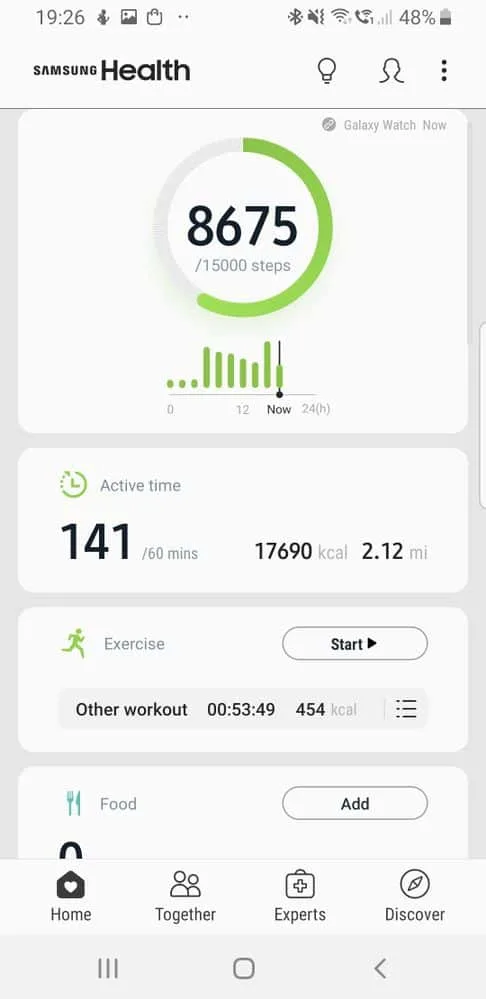
Effort: Easy
Setting up an app to automatically count your steps is very easy (Making sure you do your steps everyday is a little harder… more on that later!). The CDC recommend that adults aim for 10,000 steps per day (even though most Americans only take less than 4,000 steps per day.
Benefit: High.
You can read about the many benefits of staying active & walking in our article: Discover the Amazing Benefits of Walking Habits (And How to Walk More). Tracking your steps automatically will go a long way in monitoring your progress. It will keep you accountable and motivate you to walk even more.
10. Get your muscles a good work-out
Effort: Medium/High
According to this research, 30 minutes of strength training, twice a week, can lead to significant improvements in bone strength and performance.
Benefit: Medium/High
Exercises such as weight lifting or push-ups twice a week can help you lose weight, gain muscle mass, strengthen your bones, while making you look and feel better. See more on The Benefits of Strength and Weight Training (EverydayHealth.com).
11. Take The Stairs When Possible
Effort: Low
Going up a flight of stairs isn’t that challenging and is a great healthy habit to start. For example, the next time you’re at a shopping mall, take the stairs up instead of an escalator. If you work at an office building, consider the stairs instead of an elevator. Okay, but what if you need to get to a high floor? Well, you can leave the elevator two or three levels earlier and use the stairs for the remaining stories. For example, if you need to get to the 17th floor, leave the elevator on the 14th, and climb the remaining.
Benefit: Medium
Making it a habit to take the stairs is a great way to burn extra calories, improve your health, and manage your weight (Source: Energy Expenditure of Stair Climbing).
Habits for a Happy Mind
12. Spending 2 hours per week in nature is linked to well-being
The benefits of walking or exercising in nature are well documented: there is a growing body of research that demonstrates the benefits of nature on our hearts and minds. Simply staying in nature helps reduce stress and increase happiness (Source: Yale University).

Effort: Medium
A new study shows that you should spend at least 2 hours per week in nature: the results from this new study, involving 20,000 participants, were published in the scientific magazine Nature. The study points out that “Spending at least 2 hours a week in nature is associated with good health and wellbeing”.
Benefit: High
People who spend two hours a week in nature were significantly more likely to report good health and psychological well-being than those who don’t. The study also pointed that 2 hours was a minimum, as there appeared to be no benefits for people who didn’t meet the 2-hour weekly average.
The American Heart Association writes that “Spending time in nature can help relieve stress and anxiety, improve your mood, and boost feelings of happiness and wellbeing” (Source: American Heart Association). Going outdoors has so many benefits that people came up with new terms including “green time” or “forest therapy” (The Japenese people use my favorite term: “forest bathing”).
13. Being Mindful or Meditating
Being mindful can mean meditating, taking time for self-reflection about work, life or your happiness or even taking mindful breaks to give your mind a rest.
And scientists are beginning to understand how. One study found that 8 weeks of regular meditation can change parts of your brain related to emotions, learning, and memory.
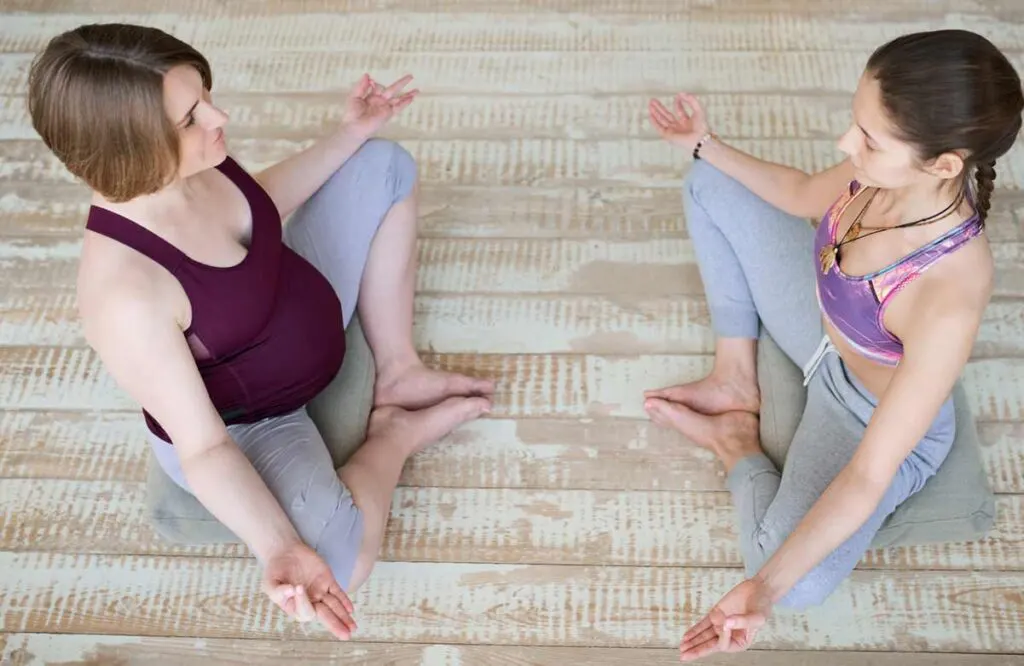
Effort: Medium
Meditation programs often recommend 15 to 20 minutes per day (Source: Center for Cognitive Therapy). However, there is no right formula and it is better that you start and stay consistent, even if it is just 5 minutes per day. You can use a habit tracker printable or an app to help you stay constistent. After all, the benefits of mindfulness will only start kicking in when you successfull adopt the habit over a long-period of time.
Benefit: Medium to High
Studies have shown that being mindful can reduce stress and improve your mood. There is even early evidence that mindfulness can help reduce depression with certain patients to some extent (Source: Harvard Health & Medicine).
Learn more about mindfullness with our article Use Mindfulness To Improve Every Area of Your Life.
14. Go to Bed Half An Hour Earlier or Adopt a Bedtime Routine
You’ve probably heard that sleep is essential to your health and happiness. Good sleeping habits should at at the top of your list of new healthy habits to start if you have trouble sleeping. The problem is, how can you go about it? Many people try to make drastic changes to their sleeping habits from one day to the next and fail. The reason is, we are creatures of habit, and we don’t do that well with huge and sudden changes.

Effort: Medium
A better way to go about improving your sleep is to make small changes – at least initially. For example, try going to bed a mere half an hour earlier than usual. If you currently go to bed around 11 pm, make a conscious effort to be in bed by 10:30 pm. You might have trouble falling asleep initially, but that will go away within a week or two.
Benefit: High (if you are not sleeping well)
Sleeping for half an hour more per night equals an extra 2.5 hours of sleep throughout your workweek, which can be incredibly beneficial. Sleep is essential. Research has documented sleep’s effects on our health, vitality, energy levels, mood, and thinking abilities incredibly well.
15. Keep a Journal / Practise Gratitude
Journaling is a great way to start the day or finish it off because it allows you to put your thoughts on paper. It’s also great for reviewing each day, focusing on what went well and expressing gratitude.

Expressing gratitude is a fantastic way to focus on the good things in your life and elevate your well-being and mood. No matter how small or seemingly insignificant, there are always good things to be happy for. By putting them on paper, you train your mind to notice them more and become more fulfilled.
Effort: Medium
Start small. For example, you can get a plain notebook and spend five minutes journaling in the evening before going to bed. Write down what went well that day and two things you’re grateful for. Read more in our article listing Top Things To Be Grateful For In 2021.
Benefit: Medium/High
Harvard Health wrote that “most of the studies published on (gratitude and happiness) support an association between gratitude and an individual’s well-being”. For example, in a study where participants were asked to keep a gratitude journal, researchers found out that “After 10 weeks, those who wrote about gratitude were more optimistic and felt better about their lives” than those who did not in the control group (Source: Harvard Health: Giving Thanks Can Make You Happier).
To learn more about the things to be grateful for, read our article: Top Things To Be Grateful For In 2021.
Healthy Habits to Start for a Productive Day
16. Get Up As Soon As Your Alarm Goes Off
Let’s face it: we’ve all used the snooze button at some point. It’s only natural to try and catch a few extra minutes of sleep, especially if the alarm wakes us up from a deep sleep.
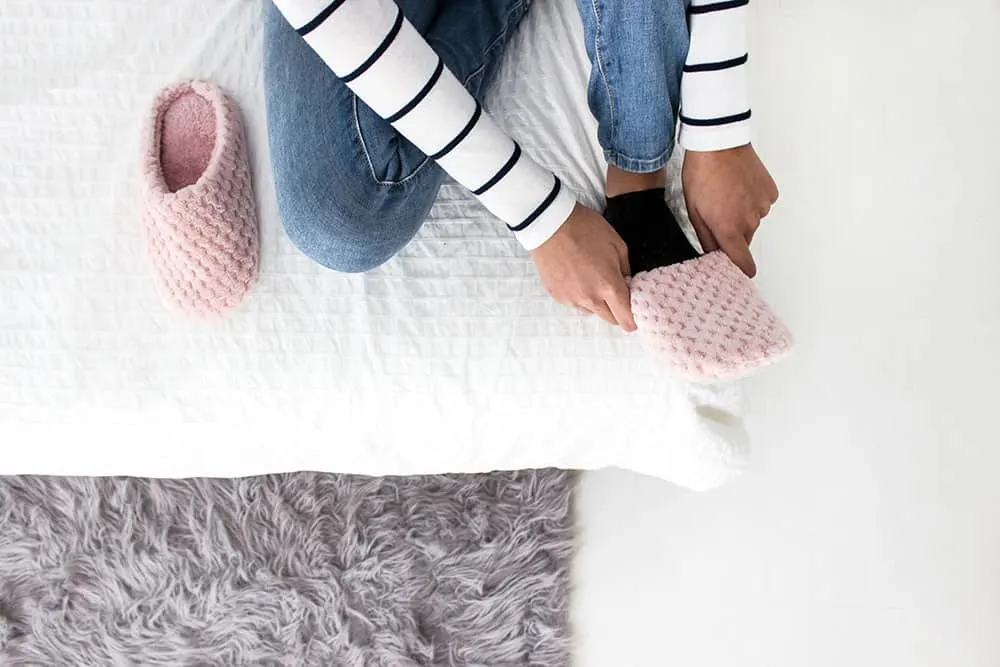
But while seemingly insignificant, the alarm going off in the morning presents us with a choice: “Do I get up and tackle the day, or do I fold and enjoy the comfort of my bed a few minutes longer?”
This might not seem all that important, but getting up as soon as your alarm goes off builds discipline.
Effort: Low
This small action reinforces the identity of, “I’m the type of person who tackles challenges head-on.” So, the next time your alarm goes off in the morning, get out of bed, turn it off, and start the day. A good way to do it is by having your alarm clock across the room from your bed. That way, you force yourself to get up and create movement. By the time you’ve turned your alarm off, you’re up and ready.
Benefit: Low/Medium
Once you are up, start off your day on a positive note. Take 2 minutes to stretch or drink a glass of water. This means that you will turn unproductive time (browsing through Facebook in bed) into a new healthy and positive habit.
17. Prepare Some Things The Night Before
Many people feel overwhelmed in the morning because they leave everything for when they wake up. The problem is, by leaving a dozen tasks for your mornings, you force yourself to start each day rushing and feeling anxious. That’s not good for your productivity , sleep or your general well-being.
Effort: Low
Before going to bed, simply try the following:
- Prepare your to-do list
- Put your work lunch in a box
- Lay out your day’s clothes
Benefit: Low/Medium
These are small but incredibly beneficial things that allow you to start your days more relaxed and free up time for beneficial habits like exercise, meditation, and similar.
18. Read 5-10 Pages Before Bed
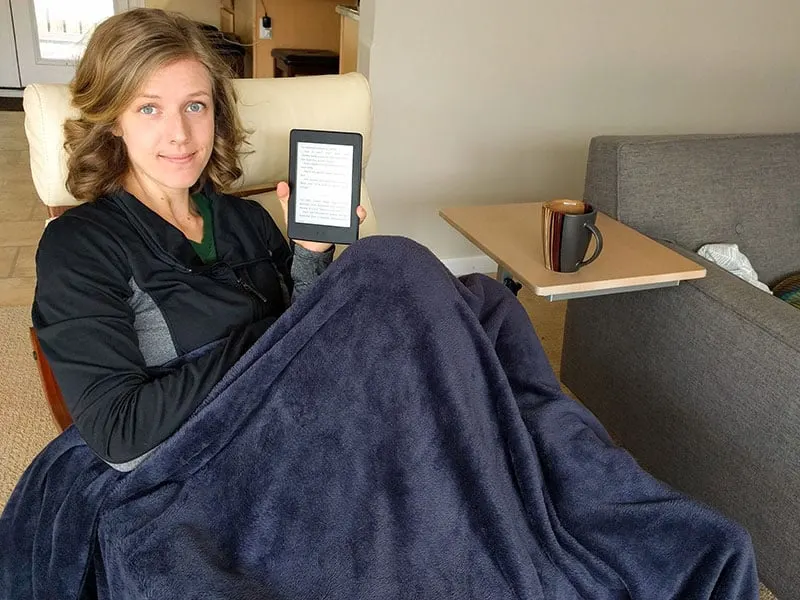
Reading a few pages every night is a great way to relax and fall asleep more easily. To make this a habit, make it a point to have your book on the shelf by your bed. This will serve as a reminder.
Effort: Medium
This new habit will only take about 5-10 minutes every day. If you pick the right books, it should also be a pleasant activity that you look forward to, so it will not feel like “work”.
Benefit: High
Reading ten pages before bed might not seem like much. But look at the impact over an entire year: Ten pages per night would net you over 3,600 pages in a year, or around 10-12 average books. Think of the incredible impact this would have on your knowledge and perspective. The simple act of reading a bit each day adds up to tremendous volumes over time.
19. Learn to Disconnect From Your Phone
Smartphones are amazing. We now get to enjoy a compact and portable computer no matter where we are, and we can connect with all of our friends and relatives with just a few taps.
But using your smartphone too much can be detrimental to your focus, productivity, and general well-being. Thanks to social media, we now compare ourselves to the highlights of people worldwide, and many people feel depressed because they feel like they are leading an unfulfilling life.
Plus, your phone can be a great source of distraction, pull you away from your work, and hinder your productivity.
Among the many healthy habits to start, one of the best things you can do is limit your exposure. For instance, keep it in another room while working and avoid using it within an hour of waking up.
20. Laugh Today… And Every Day

Effort: No effort
Simply open YouTube or your Netflix or Hulu streaming app, and look for “stand up comedy”.
Benefit: Medium
Laughter is the best medicine. The Mayo Clinic states that “When it comes to relieving stress, more giggles and guffaws are just what the doctor ordered”. Laughing doesn’t just improve your mood, it also changes your body physically: laughter can relieve stress, increase satisfaction and even improve your immune system (Source: Mayo Clinic).
If you Liked This Post, You Will Love:

